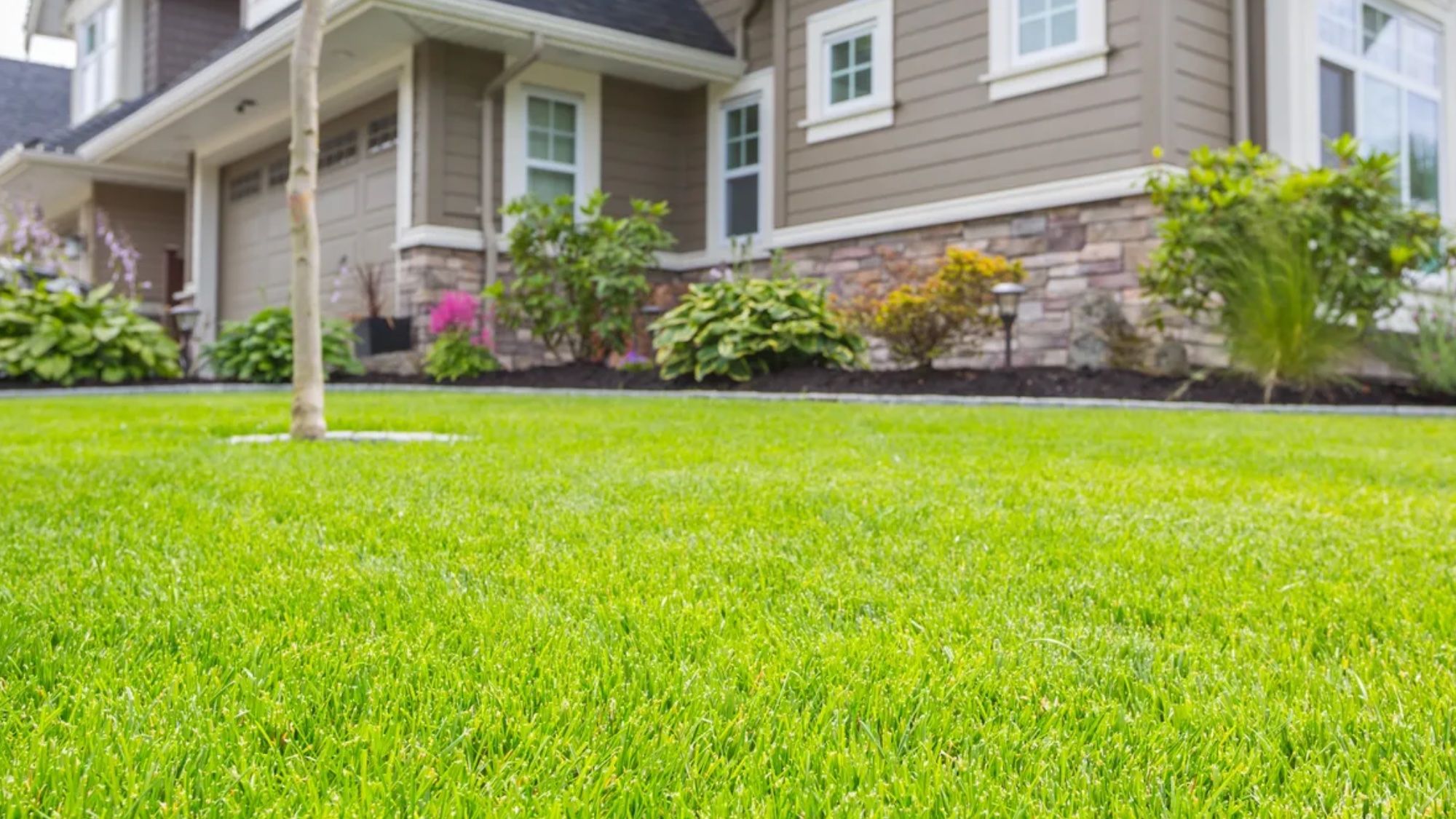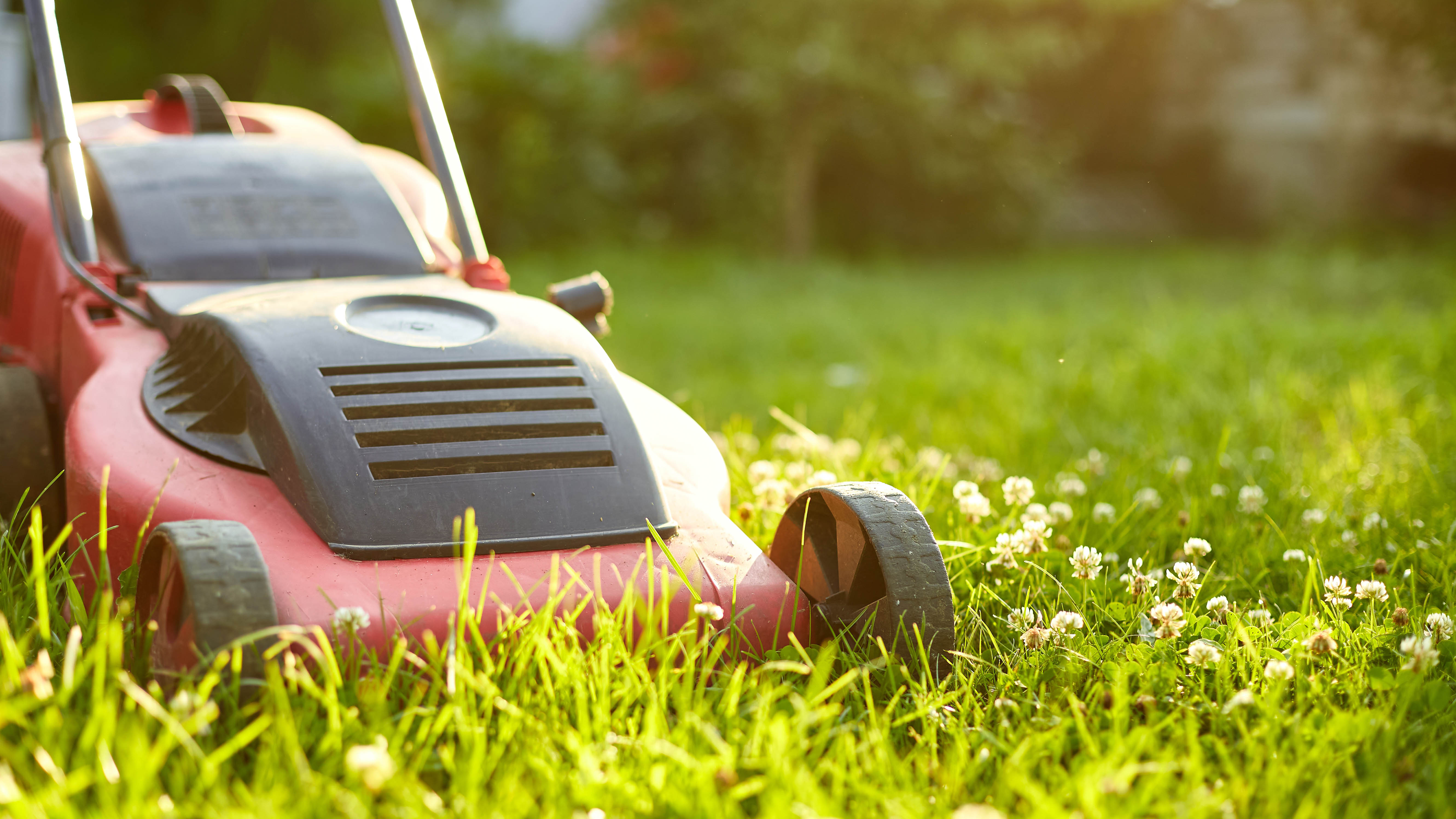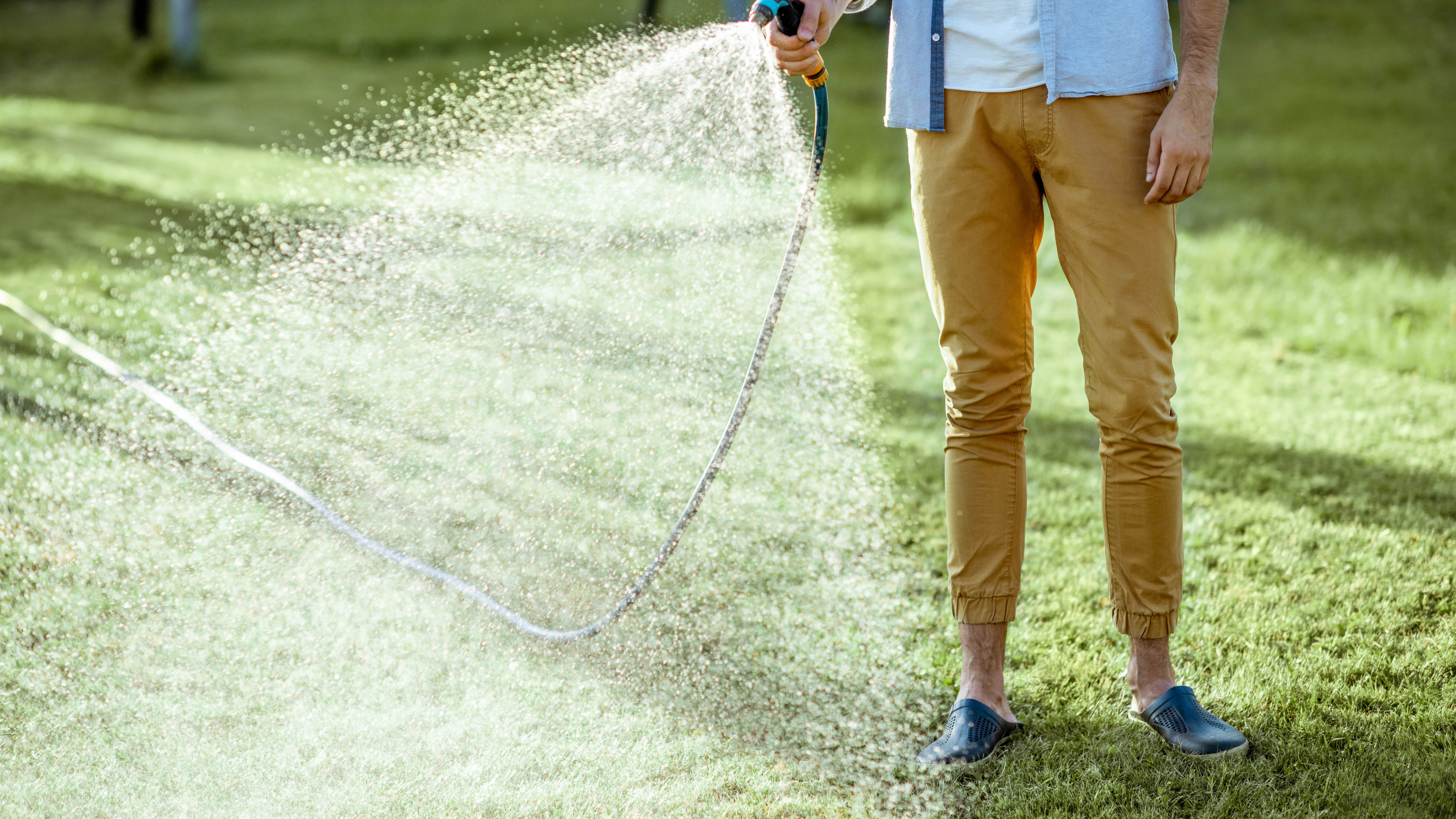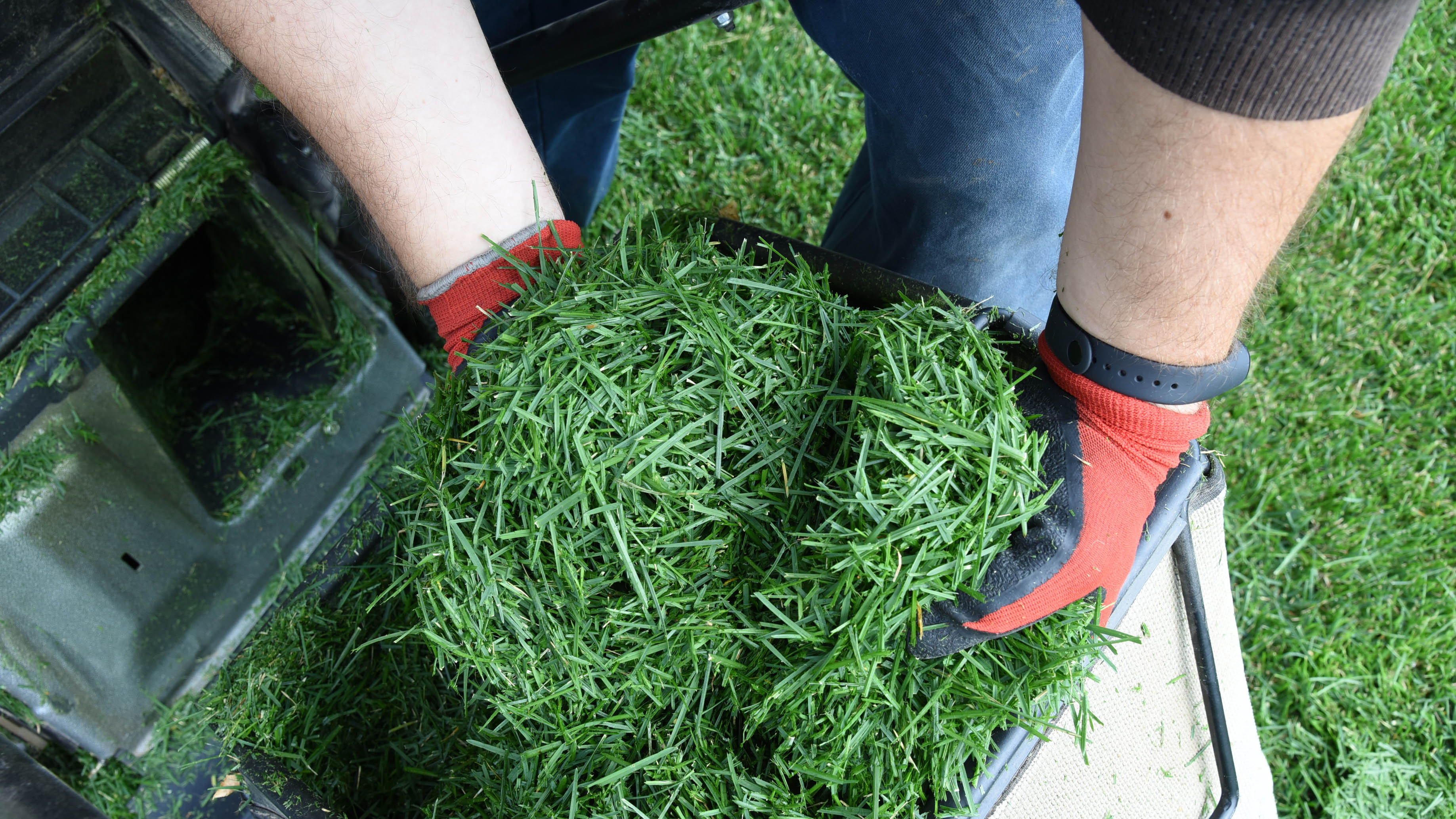
Spring is here, and it's the perfect time to get outdoors or tackle those essential lawn care tasks. But while it brings about warmer weather and sunshine, it can often be a struggle to enjoy your backyard if you suffer from allergies. Before you know it, your eyes are itchy, nose running or continuously sneezing.
In fact, grass pollen is the most common allergen, peaking between the months of May to June. Which doesn’t bode well if you want to spruce up your garden to host those summer gatherings.
However, if you’ve tried every method of fighting allergy season, including pollen-proofing your home, there are a few things you can do to reduce grass pollen. These simple things can be easily included in your lawn care regime, and won’t take long to do.
We ask a gardening expert to share their top tips on how to reduce grass pollen — so you can fully enjoy your outdoor space this summer.
Plus, here are 7 indoor plants to avoid if you have allergies.
1. Cut your grass more often

Generally, cutting your grass too short is known to impair its health, leading to no end of issues and expensive repairs. However, experts recommend increasing mowing frequency during summer months. This is because longer grass blades tend to produce and release more pollen in the air.
"It is recommended to mow the lawn once a week throughout summer as this is the period of peak growth,” says Greenhouse and Gardening Expert Lucie Bradley, at Two Wests & Elliott. “And as a general rule of thumb, you should never remove more than a third of the grass height with each mow."
In addition, if you allow your grass to grow longer, this allows for flowers, weeds and dandelions to thrive — the worst culprits for high pollen levels.
When tending to your grass, be sure to avoid these 7 common lawn care mistakes you’re probably making right now. Plus, here’s how to sharpen lawn mower blades in 9 simple steps. And if this relates to you, you probably want to avoid No Mow May.
2. Water the lawn to douse off pollen

An essential aspect of lawn care comes down to watering — your grass needs to receive not too much or too little, and it needs to receive it at the right time.
Experts suggest that a gentle lawn watering can help to reduce pollen levels, as this can stop the pollen particles from spreading into the air. And if you’re wondering when is the best time to water your lawn, it’s during the early morning — between 6 am and 10 am. Typically, this is the coolest time of day so the water will not evaporate, especially if there is a heatwave.
"It’s best practice to soak your lawn once a week for 5-10 minutes depending on the lawn size. During spring and autumn you can count on rainfall to do this for you but during the drier summer months, it’s crucial to maintain a regular watering cycle."
"With that in mind, it’s a good idea to prepare for hosepipe bans. A water butt is a simple yet effective way to store collected rainwater for use in the garden."
In addition, ensure your lawn is dry before nightfall, as leaving your lawn damp overnight will make it more prone to disease, or risk having to fix a waterlogged lawn.
3. Remove any leftover grass clippings

There are several ways to reuse grass clippings, and it’s a great, organic way to treat the lawn and improve your soil. However, cuttings can also aggravate and release more grass pollen. This is especially when leftover clippings get picked up by the wind, spreading pollen to further agitate allergic symptoms.
"It's best practice to collect grass clippings in the lawnmower's grass collection box before disposing of these either in a green garden waste bin or onto a compost heap. Once the peak pollen season has ended, then clippings can be scattered back onto the lawn."
If you’re new to composting, check out these 7 composting tips everyone needs to know. Just as long as you avoid making one or more of these composting mistakes that could prevent waste from breaking down properly, or worse still, attract rats, mice or any other unwanted pests.







